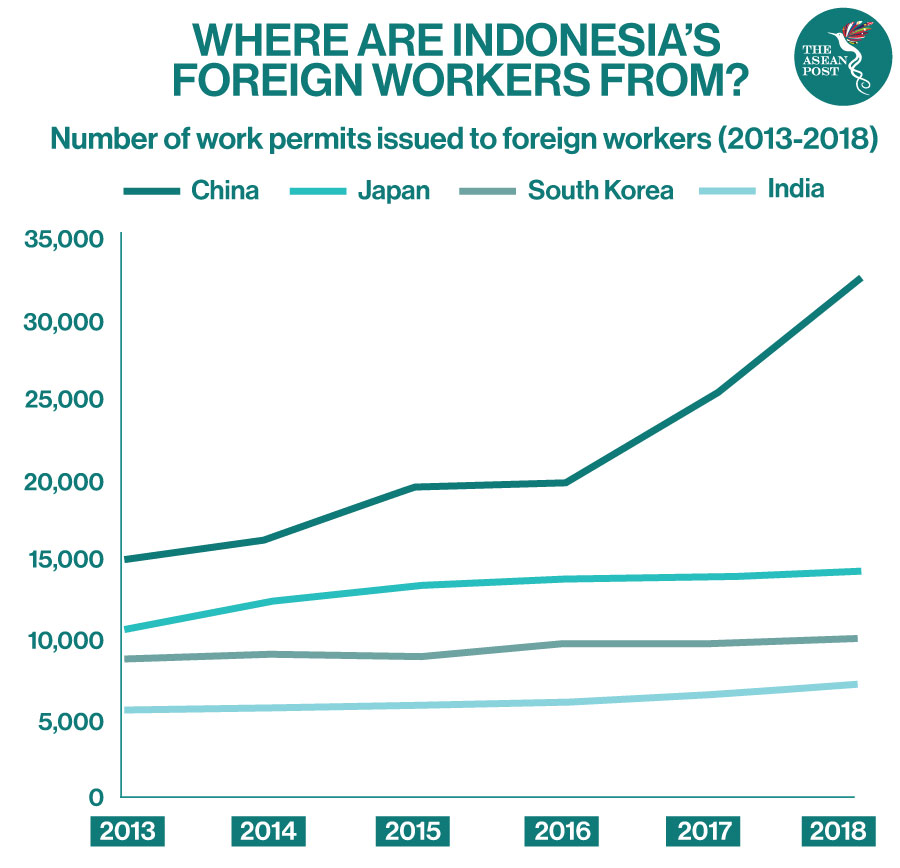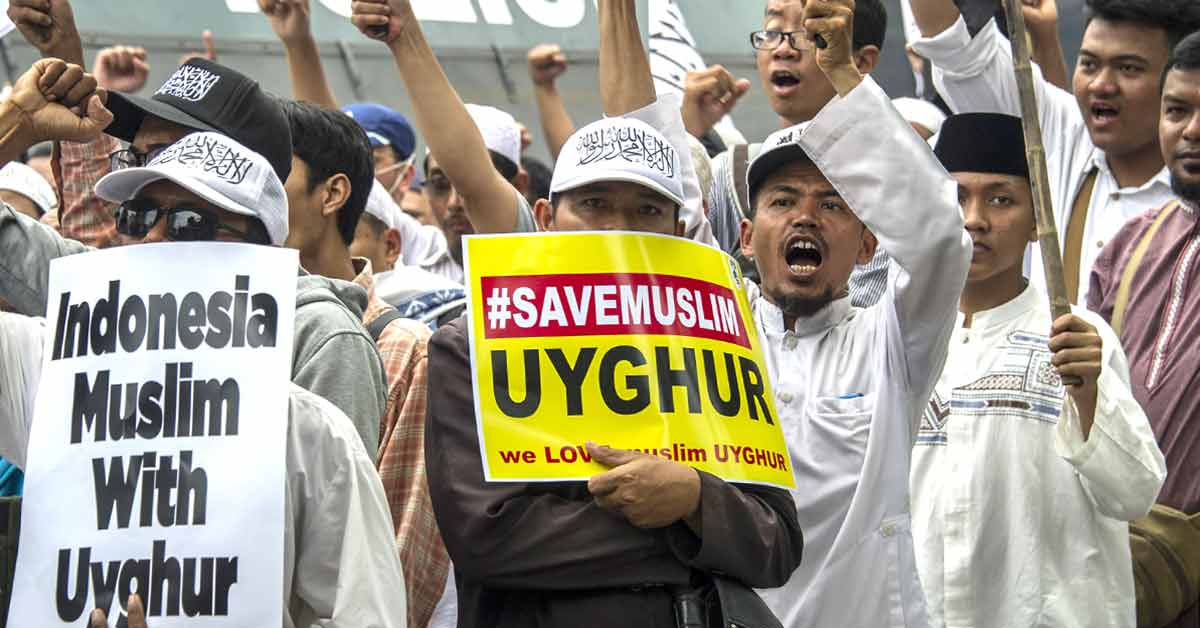The ongoing discrimination against Uyghur Muslims in China continues unabated despite media attention from across the globe. Uyghurs, who mostly live in the Xinjiang administrative region, are known to suffer inhumane treatment at the hands of the Chinese government. The United Nations (UN) estimates that around one million ethnic Uyghurs have been detained in so-called ‘re-education camps’ since 2017 in flagrant disregard of international human rights laws.
Global human rights organisations such as Amnesty International have also stressed that in recent years the Chinese government has stepped up its campaigns of mass detention, political indoctrination and forced assimilation against its Uyghurs.
Beijing’s ill treatment of the Uyghurs has attracted the attention of the international community, including Indonesia, the world's most populous Muslim-majority country. Even though the government of Indonesia has yet to state a clear position on the situation faced by the Uyghurs, many Indonesians have condemned the Chinese government's treatment of the Uyghurs, and have called on the government in Jakarta to take more active steps with regards to this issue.
What is probably less known outside Indonesia is that China’s policy towards its Uyghurs has indirectly helped to stoke anti-Chinese sentiment which is becoming prevalent in Indonesian society.
Anti-Chinese sentiment has been rooted in Indonesia for a long time, where ethnic-Chinese in the country make up just 1.2 percent of the country’s population. The success of Indonesia’s ethnic Chinese in business and their historical links to communism have made them vulnerable. Most ethnic-Chinese Indonesians are either Christians, Buddhists or Confucianists; with less than five percent of them Muslim, the country's dominant religion.
In the mid-1960s, hundreds of thousands of suspected communists – some of Chinese descent –were killed after the military had alleged that they had instigated an attempted coup. Ethnic Chinese were also the main victims of the 1998 riots, where almost 100 women were raped and 1,000 people murdered; they were scapegoated for the country's economic downturn during the Asian Financial Crisis because of their involvement in the economy.
Growing Economic Influence
To this day, the sentiment remains widespread within Indonesian society. This was seen, for example, a few years ago when Basuki Tjahaja Purnama or Ahok, a Christian of Chinese descent, ran in the 2017 election for governor of Jakarta.
The more recent anti-Chinese sentiment is fuelled by China's growing economic influence in Indonesia. Among the accusations being hurled around are widespread claims that imported Chinese products have been deliberately infected with bacteria and fears that mainland Chinese workers are taking most of the available local jobs.

With the emergence of the COVID-19 pandemic, this sentiment has grown even stronger. Just like United States (US) President Donald Trump, many Indonesians on social media have taken to using the term "Chinese virus" to refer to the COVID-19 coronavirus. Some religious conservatists have been calling for a fatwa, or religious decree, to bar Chinese-Indonesians and Chinese nationals from entering Indonesia.
The anti-Chinese sentiment is also indirectly associated with the discrimination of the Uyghurs. The government’s unclear stance on the Xinjiang issue has led to many in the country believing that this is because of President Joko “Jokowi” Widodo’s alleged close relationship with China and the local ethnic-Chinese community. During the 2019 presidential election – which Jokowi won to secure a second term in office – this belief snowballed into the creation of a popular conspiracy theory among Indonesians that Jokowi was secretly a puppet of the Chinese and that he was selling out Indonesia for his “master’s” economic gains.
Deadly Weapon
In the midst of the current pandemic, some Indonesians are also claiming that the COVID-19 pandemic is a backlash for Beijing’s treatment of Uyghurs in Xinjiang. Some have even described the pandemic as God’s warning in response to China’s policies.
Others see the COVID-19 pandemic as a deadly weapon launched by the Chinese Communist regime as part of their national program to eradicate Muslims.
In late 2019, Presidential Chief of Staff Moeldoko stated that Indonesia will not meddle in the Uyghur issue. He claimed that it would not be poking its nose into another country’s business; framing the plight of the Uyghur as China’s internal affair.
While the Uyghur situation in Xinjiang has contributed indirectly to anti-Chinese sentiments in Indonesia, the governments in Jakarta and Beijing need to realise that their domestic situations could impact one another and should not be taken lightly.
The Jakarta-based Institute for Policy Analysis of Conflict has reported that affiliates of the Islamic State terrorist group in Indonesia have increased their anti-Chinese rhetoric on social media during the pandemic in the hope of using the COVID-19 outbreak as a pretext to target either those of Chinese descent or Chinese expatriates living in the country.
This situation could also have negative repercussions on growing China-Indonesia relations. Indonesia is expected to receive a lot of benefits from the implementation of the Belt and Road Initiative (BRI), given that it is one of the focal points in planned maritime routes for the initiative which will connect China with Africa, the Middle East, and Europe.
If, however, anti-Chinese sentiment remains or even increases in Indonesia, this would create an unpleasant environment for Chinese investments and projects in the country. Such developments could also hinder the Indonesian government’s efforts to improve the country’s economy, which is heavily dependent on China. As a matter of fact, many in Indonesia have called for the government in Jakarta to sever its ties with China and to stop Chinese investments altogether in the country.
More importantly, this should serve as a wake-up call for Beijing that its domestic policy could impact its footholds and economic interests in other countries. In particular, its inhumane policy towards the Uyghurs could reinforce the prevalence of anti-Chinese sentiment, not only in Indonesia but also in other parts of the world.
Related Articles:


